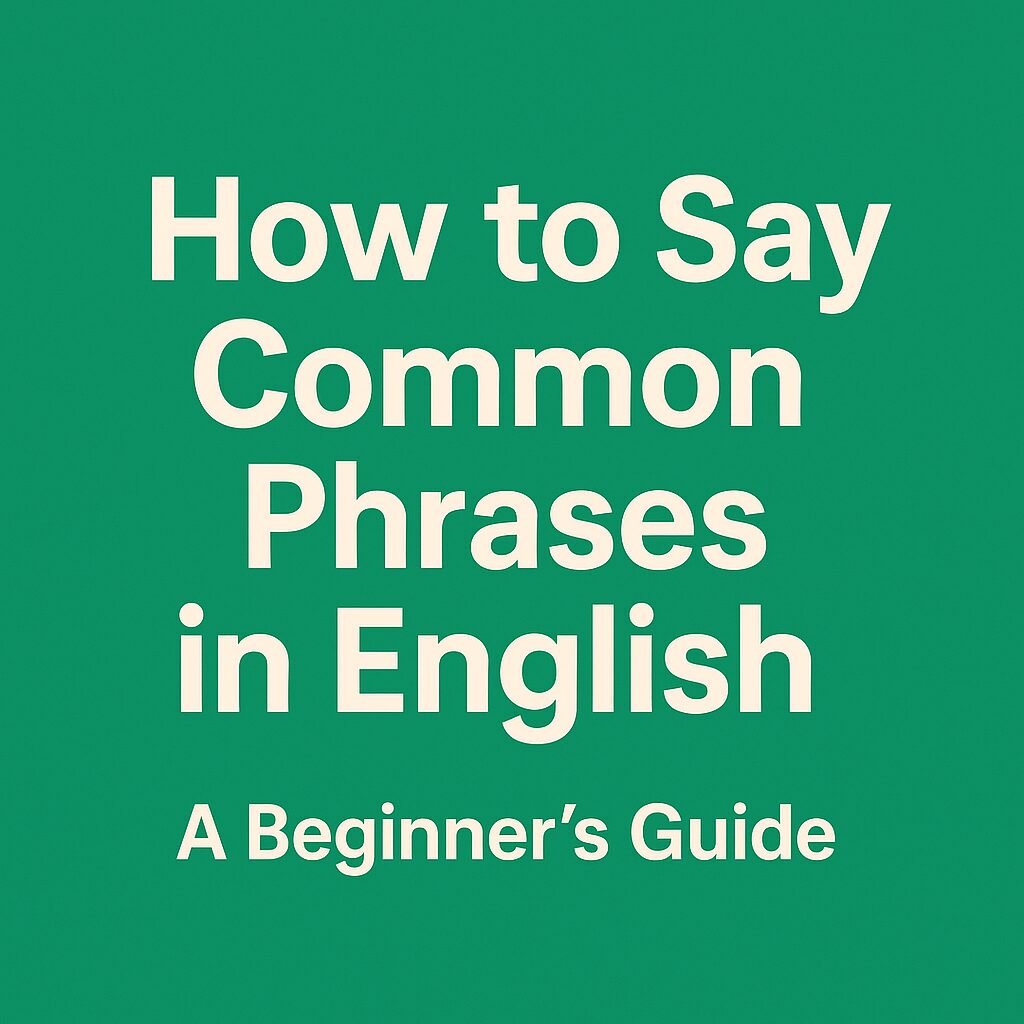Learning how to say everyday phrases in English is one of the first steps to becoming fluent. Many people search on Google for questions like:
How to Say Hello in English
Saying hello is the first thing you do when you meet someone. The most common ways to say hello in English are:
• Hello
• Hi
• Hey (informal)
• Good morning (before 12 PM)
• Good afternoon (12 PM to 5 PM)
• Good evening (after 5 PM)
Examples:
• Hello, my name is Ahmed.
• Hi! How are you?
• Good morning, teacher!
Tip: Use “Hello” or “Hi” for everyone. “Hey” is mostly for friends.
How to Say Thank You in English
Being polite is very important in English-speaking countries. Say thank you to show respect.
• Thank you
• Thanks
• Thanks a lot
• Thank you very much
• I really appreciate it
Examples:
• Thank you for your help.
• Thanks for the gift!
• I really appreciate your support.
Tip: Use “Thanks” for casual situations. Use “Thank you very much” for formal or serious situations.
How to Say Sorry in English
Everyone makes mistakes. Learning how to say sorry helps you show you care.
• Sorry
• I’m sorry
• I’m very sorry
• I apologize
Examples:
• I’m sorry I’m late.
• Sorry, I didn’t see your message.
• I apologize for the mistake.
Tip: Say it sincerely. Smile or look calm when you say sorry.
How to Say Goodbye in English
When leaving someone, it’s polite to say goodbye. Here are common phrases:
• Goodbye
• Bye
• See you later
• Take care
• See you soon
• Have a nice day
Examples:
• Bye, see you tomorrow.
• Take care!
• Have a nice weekend.
Tip: “Bye” is the most common. Use “Take care” for friendly goodbyes.
How to Say I Love You in English
This is a strong phrase used with family, close friends, or partners.
• I love you
• I really like you (less strong)
• I care about you
• I have feelings for you (romantic)
Examples:
• I love you, Mom.
• I really like spending time with you.
Tip: Use “I love you” only when you mean it deeply.
How to Say I Don’t Understand in English
If you don’t understand something, it’s okay to say it. People will help you.
• I don’t understand
• Can you repeat that, please?
• Sorry, I didn’t get that
• What do you mean?
Examples:
• I don’t understand this word.
• Can you say that again, please?
• What do you mean by “assignment”?
Tip: Ask politely. Most people are happy to explain.
How to Say Please in English
“Please” is a magic word in English. It shows manners and respect.
• Please (used before or after a request)
Examples:
• Can you help me, please?
• Please sit down.
• Pass me the pen, please.
Tip: Always say “please” when you ask for something.
How to Say Yes and No in English
Simple but very important words!
• Yes
• Yeah (informal)
• No
• Nope (informal)
Examples:
• Yes, I want some water.
• No, thank you.
• Yeah, that’s great!
Tip: “Yes” and “No” can be made more polite by adding “please” or “thank you.”
How to Say Good Luck in English
Wishing someone well is kind.
• Good luck
• Best of luck
• All the best
• You got this! (informal)
Examples:
• Good luck on your exam!
• All the best in your new job.
Tip: Say it before someone does something important.
How to Say Congratulations in English
Use this when someone succeeds.
• Congratulations!
• Congrats! (informal)
• Well done!
• I’m proud of you
Examples:
• Congratulations on your graduation!
• Well done, you did it!
Tip: You can also add a smile or even give a handshake.
Final Tips for English Learners
• Practice these phrases with a friend or teacher.
• Watch English movies and write down new expressions.
• Use voice apps like Google Assistant to practice speaking.
• Don’t be shy. Making mistakes is part of learning.
Conclusion
Now you know how to say the most common and useful phrases in English. These are the same questions that thousands of learners search on Google every day.
By practicing them, you will sound more natural and confident. Keep learning, and don’t stop speaking!
If you found this guide helpful, share it with a friend or leave a comment below!
also read

